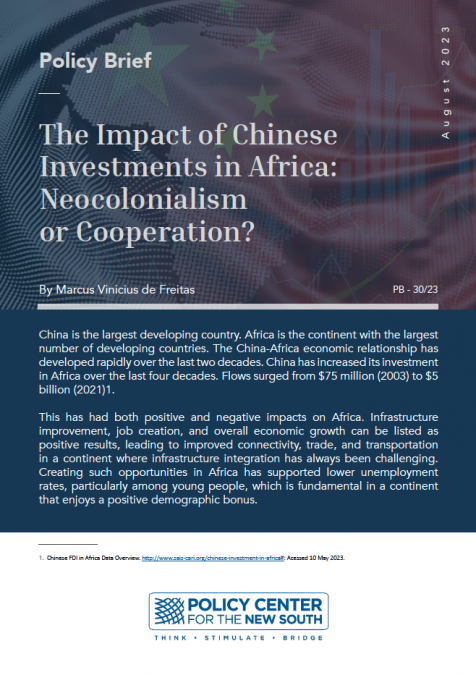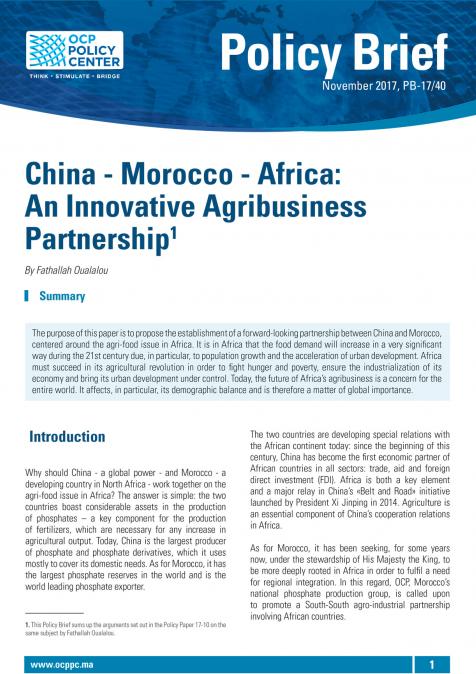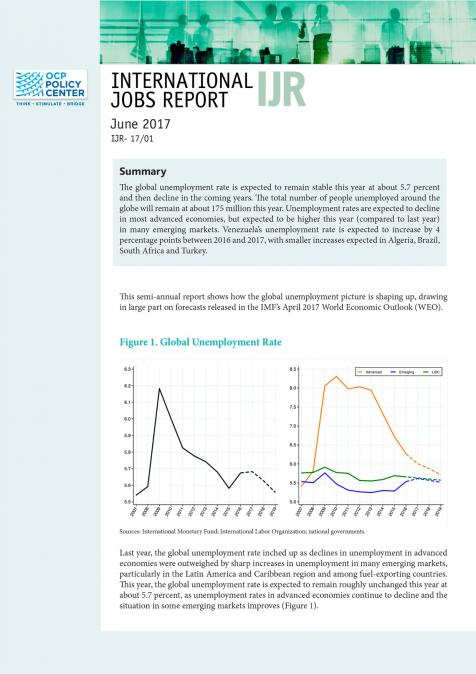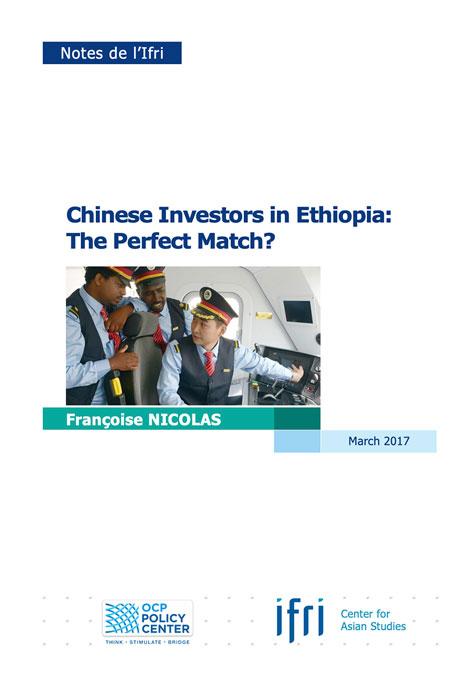Publications /
Policy Brief
China is the largest developing country. Africa is the continent with the largest number of developing countries. The China-Africa economic relationship has developed rapidly over the last two decades. China has increased its investment in Africa over the last four decades. Flows surged from $75 million (2003) to $5 billion (2021).
This has had both positive and negative impacts on Africa. Infrastructure improvement, job creation, and overall economic growth can be listed as positive results, leading to improved connectivity, trade, and transportation in a continent where infrastructure integration has always been challenging. Creating such opportunities in Africa has supported lower unemployment rates, particularly among young people, which is fundamental in a continent that enjoys a positive demographic bonus.
Through Chinese investments, African countries have diversified their economies and exports, with greater access to new sources of income generation and economic growth, and improved overall prosperity.
Criticisms of Chinese investments in Africa include debt-trapping, economic dependence, and prioritization of Chinese interests over local needs. There have been accusations of increased corruption in Africa, bribery and unfair business practices to secure business transactions2.
However, unlike Western governments, China: (i) has not made significant efforts to export its governance model; (ii) has heavily invested in Africa; and (iii) has not pursued the building up of a network of states obliged to supply natural resources and locations for military bases. Chinese investments have, in ever-increasing ways, profoundly impacted the continent through mutually beneficial cooperation, without interference in domestic politics and internal affairs.
Investments in the continent will likely increase since Africa is an essential frontier in development. Once the global situation settles after the COVID-19 pandemic and the war in Ukraine, Chinese investment in Africa will continue to grow. How can Africa benefit from the Great Power competition between China, the European Union, Russia, and the United States? Will China’s presence in Africa be a new form of colonialism? Can China and Africa develop win-win cooperation? This Policy Brief addresses these issues based on how the Chinese presence has affected the continent.
CHINA’S HISTORICAL PRESENCE IN AFRICA
Over the last five decades, no country has gone through more changes than China. From a marginal actor and the least developed country to the largest economy in the world in purchasing power parity (PPP) terms, China’s path to relevance and Great Power status is an irreversible reality.
Throughout this period, China’s presence in Africa has grown from minor relevance to the continent’s largest trading partner, with expectations of more, mainly due to the Belt and
Road Initiative (BRI). Thousands of Chinese companies have settled and are operational in African countries, with entrepreneurship growing in China and in Africa.
The growing Chinese presence in Africa is not unnoticed. Africa has also become a territory where the clash between the Great Powers, particularly the United States and China, is observed5. There is much negative campaigning against China without considering the possibilities the China-Africa Partnership has already generated. Such allegations repeat the usual criticisms against China: neocolonialism, debt trapping, corruption, employment of Chinese workers, and disregard for local human rights violations.To address such issues, China has embraced several programs to counteract anti-China sentiment and stimulate Chinese firms into positive action.
Beijing has been actively modifying its approach to retaining its African foothold, particularly considering that African countries have been eager to explore new development models based on local know-how, innovation, and human capital. China has also been learning about the internal politics of African countries, and has been limiting its exposure level to possible defaults or instabilities derived from unstable domestic situations.
CHINESE NEOCOLONIALISM?
One of the main arguments against the Chinese presence in Africa is that it may be implementing a new form of neocolonialism. Accusations against China also allege domination over African natural resources. Neocolonialism is an indirect form of control exerted by powerful countries that use—for their benefit—cultural, economic and political power to exploit the labour and resources of the ‘colonised countries’. This may include control through financial agreements, investment strategies, debt-trapping, and unfair investment policies, mostly leading to an increased dependency due to unequal trade and exploration of resources, including biodiversity. Political pressure is exercised by interfering in domestic affairs to promote the coloniser’s security interests and needs. Additionally, neocolonialism may include imposing cultural values or political ideologies onto the colonised nation, thus undermining indigenous culture, values, and identity.
China has faced increasing—accusations about its intentions in Africa. These focus particularly on Chinese interests in securing access to resources, trade, and military alliances and bases. China’s involvement in countries with weak governance has fostered anti-Chinese sentiment and opposition. Backlashes have erupted, provoking accusations of neocolonialism and resource exploration. To both claims, China has reaffirmed its commitment to never monopolise land and access to economic growth opportunities, and to modernisation as a means to secure common prosperity to reach development.
China has helped build much-need infrastructure in Africa, positively impacting the output of goods and services, despite some countries still facing domestic governance and corruption challenges. China has invested heavily in the continent to expand the reach of its soft power, diplomatic influence, and infrastructure initiatives to consolidate its interests and presence. China, however, has not imposed its governance model on any of the countries in Africa it has maintained an active relationship with.
Through this process, China has become Africa’s largest trading partner, accounting for more than $282 billion in trade in 2022. Approximately 16% of Africa’s total manufacturing imports came from China in 2018, a shift in a continent that so heavily depended on Europe. Twenty-five economic and trade cooperation zones have been created with China in sixteen African countries. Such zones, registered with China’s Ministry of Commerce, had attracted 623 businesses with a total investment of $7.35 billion by the end of 2020. Such cooperation zones have boosted local industrialization in various sectors, including natural resources, agriculture, manufacturing, and trade and logistics. One-third of Chinese companies have concentrated on manufacturing, one-quarter on services, and around one- fifth on trade, construction, and real estate. With such initiatives, the Chinese footprint has grown to approximately 12% of Africa’s industrial output—about $500 billion annually. As to the infrastructure sector, Chinese companies claim nearly 50% of Africa’s contracted construction market.
Based on the current understanding of neocolonialism and the painful Chinese experience with European colonialism, historical memory has been a guiding principle for the Chinese to pursue a different path of relationship, in which Africa is not a backyard of China’s development, subject to its interference in domestic affairs. In this sense, Western countries have attached more political strings and exercised greater political influence than China over the domestic affairs of Africa’s diplomacy.
DEBT TRAPPING?
Africa has received many funds through the Belt and Road Initiative (BRI), which aims to create a new geopolitical order that will re-establish China’s dominance in Asia and Eurasia. Though highly criticized by the United States, the BRI has been an essential tool of Chinese diplomacy since its launch in 2013. The debt-trapping issue—a claim that China is luring countries into unsustainable loans to build unnecessary infrastructure and to expand its strategic and military reach—has been repeated in the media, particularly after the Sri Lanka’s Hambantota Port situation. However, the Sri Lankan default is more related to its economic difficulties associated with the lack of tourism during the COVID-19 pandemic than the debt service it owed to China.
Additionally, contrary to the argument of Chinese debt-trapping, the BRI—an economic project with a financing mechanism—has been recipient-driven since its inception, with countries selecting the projects or what will be built under its umbrella. China has an appetite for large infrastructure projects because of its history and the fact that other sectors would not provide Chinese companies with the identical multiples they find in their own country.
Since China does not dictate what is to be built, BRI projects reflect the needs and goals of local governments. The problems some of these projects have presented result from local- governance challenges that may have adverse economic, environmental, and political implications. Such situations have forced Beijing to alter course and change policies occasionally.
However, because of high levels of indebtedness and financial vulnerability in some countries, debt-trapping in Africa has been an accusation levelled against Chinese investments. This allegation has been based on China’s significant role in providing loans for infrastructure projects under favorable terms, such as low-interest rates and extended repayment periods. Such loans may become economically unviable, leading to debts countries may be unable to repay. Additionally, Western critics have criticized the lack of transparency of Chinese loans in Africa, with limited accountability and public scrutiny. Three situations are generally referred to when referring to this debt-trapping allegation: Djibouti, Kenya, and Zambia.
In the case of Djibouti, where China has built its first overseas military base and has invested significantly in ports and infrastructure, the debt levels have increased substantially, leading to concerns that, eventually, China could enhance its influence in the country and affect its sovereignty12. In Kenya, China’s ever-increasing infrastructure investments, notably the Standard Gauge Railway, have faced criticism because of high costs and corruption charges, and may lead the country to default13. Zambia also received Chinese investment for major infrastructure projects—energy and transportation. Because of falling prices in the copper industry—one of Zambia’s most important sectors—the possibility of default could lead to a Chinese takeover of the country’s strategic assets.Despite Western allegations of debt- trapping, China should not be blamed for the challenges faced by these countries, where economic mismanagement, associated with the current unstable geopolitical conditions in the aftermath of the COVID-19 pandemic and the war in Ukraine, may have been the most probable causes of financial difficulties.
Chinese loans have provided African countries with the necessary funding to build infrastructure and foster economic growth, mainly through trade, filling up a financing gap Western countries have not been willing to deal with. Chinese loans have been used primarily used to develop Africa’s poor infrastructure: about 40% has been utilised for power generation and transmission and 30% for upgrading outdated transport facilities. Chinese loans have low interest rates and long repayment periods. China has also announced that some least-developed countries would be exempted from outstanding debt. The International Monetary Fund (IMF) and the World Bank have played an essential role in providing the necessary guidance for responsible borrowing.
GREAT POWER COMPETITION IN AFRICA
Great-power competition, a classic aspect of international relations, is based on traditional power politics, particularly a permanent contest for supremacy regionally or globally. The issue of great- power competition is particularly relevant in the context of China’s rise, the relative decline of the United States, and Russia’s resurgence. Three distinctive elements—power, security, and status— are the most significant stakes in geopolitical competition. Other factors, such as neighbourhood and subregion, may affect the quest for great-power status.
In Africa, rivalry and competition for influence and resources between the European Union, the United States, Russia, and China are occurring. Throughout history, Africa has attracted significant international interest because of its natural resources and economic potential. Additionally, the geostrategic location of Africa is of particular interest since it is the continent best positioned geographically in relation to the larger consumption centers of the world. Africa has—differently from the other continents—a positive demographic bonus with growing consumer power.
Great power competition in Africa has had several positive consequences. African countries have become attractive for foreign direct investment (FDI) due to their demographic bonus, growing economic markets, and infrastructure opportunities. China has been very active in the continent since the early 2000s, with a growing presence through the BRI, focusing mainly on ports, railways and energy facilities.
Military cooperation has been an area of particular interest, with the United States having the most significant military presence in the region. China has been involved in peacekeeping missions in Africa and recently established its first overseas military base in Djibouti. Russia, which has had an active presence since the Soviet Union period, also has significant cooperation agreements with many African countries.
With African abundance in natural resources—oil, gas, minerals, and agricultural commodities— access to such goods has been an essential driver for competition between the Great Powers. All players—Russia, China, the EU and the U.S.—have sought cooperation agreements to secure access to resources and diverse energy sources.
Diplomatic engagement with Africa has grown. Both China and the United States have launched initiatives to enhance diplomatic cooperation with African countries. China has established and developed the relevance of its Forum on China-Africa Cooperation (FOCAC), and the United States has its own frameworks, like Prosper Africa, to promote economic growth and improved governance.
China adopts a ‘no-strings-attached’ approach in Africa, with a particular focus on economic development and infrastructure, while Western countries seek to emphasise governance and human rights. The Chinese strategy has allowed African countries to implement projects faster to address current issues and challenges.
African countries can leverage this great power dynamic based on their domestic interests and long-term strategies to attract investment, technology transfer, and more rapid economic development. The effective determination of the national interest with an effective strategy should be the main driving force for pursuing a thriving situation.
Great power competition in Africa reflects the broader global shifts in geopolitics and economic interests. It presents opportunities for African nations to benefit from foreign investment and partnerships, but also poses challenges in managing competing interests and ensuring sustainable development.
CHINA AND THE EUROPEAN UNION IN AFRICA
China and the EU are both active in Africa with different motivations and approaches. However, European ties are much older than Chinese. Africa’s historical relationship with European countries derives from a past of exploitation of the continent, and divisions that have been difficult for African countries to overcome. The European colonial history in Africa has led to requests for reparations, mainly arising from slavery and exploitation of the continent.
Over the last decades, the relationship between the EU and Africa has focused more on development aid and cooperation in governance, sustainable development, trade and development through various Economic Partnership Agreements.
China’s engagement in Africa does not share the negative legacy and background of the European countries. Chinese engagement has been driven primarily by infrastructure investment and resource extraction. However, it should be emphasized that China considers infrastructure investment as the essential source for more secure economic growth, based on a Chinese proverb which states, “if you want to get rich, build roads first”. This adage reaffirms the Chinese perspective that infrastructure building is essential for growth and for building a positive legacy from the Chinese presence in Africa.
China’s presence has challenged the EU’s traditional influence in Africa by offering an alternative to conventional Western partners. For the best interest of Africa, the EU and China, however, should engage in more development projects in the continent with a win-win perspective, which would significantly contribute to the continent’s development.
CHINA AND THE UNITED STATES IN AFRICA
Both China and the U.S. have been actively engaged in Africa. The U.S. has focused primarily on private-sector investment and market access for U.S. companies. Additionally, the United States has launched initiatives like the African Growth and Opportunity Act to provide duty-free access to the American market for some African products.
To counter the BRI, the U.S. has also been increasing efforts to enhance its diplomatic presence, and increase U.S.-Africa trade and investment ties. It has also implemented initiatives like the Young African Leaders Initiative (YALI) to build relationships with African leaders and slow down the influence of Confucius Institutes, the purpose of which is to promote Chinese language and culture.
Additionally, the U.S. has been concerned with a possible enlargement of Chinese military presence in the continent. The U.S. is present in Africa through its African Command (AFRICOM), a vital factor for capacity building and fighting against terrorism.
In the technology arena, where the China/U.S. strategic clash has been deepening, particularly in cybersecurity, artificial intelligence, and 5G technology, African countries must distance themselves from this divisive push for technological dominance, in order to be able to choose what is best for themselves.
CURRENT AFRICAN CHALLENGES
Africa continues to face several challenges. Addressing these is essential to secure development, growth, and progress. Despite positive economic growth in the last decade, poverty, unemployment, and income inequality are still challenges Africa faces, particularly in securing inclusive development.
Many African countries still face governance and stability issues, with weak institutions and corruption leading to political and economic instability. A fragile environment for transparency and the rule of law is a challenge African nations still need to overcome to achieve greater stability.
Additionally, the continent still faces challenges related to inadequate infrastructure— transportation, energy, and telecommunication—which limit economic growth and development. Developing robust infrastructure is crucial for trade and development, particularly in a continent that faces the fastest demographic transition, with significant challenges for urban planning, resource management, health services, and sustainable growth.
Inadequate rule of law, transparency, and infrastructure are Africa’s greatest challenges, imposing significant limitations on accessing essential services. Several African countries still face domestic and cross-border conflicts that disrupt investment, development, and conflict resolution. In the healthcare arena, Africa still has several challenges, including HIV/AIDS, malaria, and other illnesses that impact severely the population’s standard of living and longevity. Poor educational systems with low literacy rates generate challenges for workforce quality and innovation as essential tools to foster growth.
Such challenges require international partnerships, engagement, local empowerment, and improved human capital to unlock Africa’s potential.
CHINA AND AFRICA
China has cooperated actively with several African countries, particularly on infrastructure, investment, trade, and aid.
China has been responsible for developing several significant African infrastructure projects, particularly ports, airports, roads, and power plants. Such projects address Africa’s most pressing challenge: connectivity within the continent. China has engaged actively with African countries on technology transfer and capacity-building projects in telecommunications, renewable energy and information technology, mobile networks, and enhanced communication infrastructure.
China became Africa’s largest trading partner in 200920, with an ever-increasing trade volume, with Chinese demand for commodities—oil, minerals, and agricultural products—contributing enormously to expanded trade, job creation, and economic growth. Though criticized at times for causing environmental degradation and resource depletion, Chinese investments have proven to be more positive than negative in terms of their results in the continent. Chinese companies have invested in mining activities, particularly in copper, cobalt, gold, and iron ore, particularly in Congo, Zambia, and South Africa.
Africa has approximately 90% of the entire global supply of platinum and cobalt, half of the world’s gold, two-thirds of the manganese, and 35% of the uranium. Africa has nearly 75% of the world’s coltan, used in electronic devices, particularly cell phones21.
Chinese aid programs—sometimes criticised for lack of transparency—have provided African countries with grants and loans to make improvements in areas including agriculture, education, infrastructure, and healthcare.
Chinese FDI into Africa went from $74.8 million in 2003 to $5.4 billion in 2018. Inflows, however, declined to $2.7 billion in 2019. However, the investment level increased to $4.2 billion despite the COVID-19 pandemic. The Chinese FDI stock in Africa grew approximately a hundred-fold, from $490 million in 2003, peaking in 2018 at $46.1 billion, and decreasing to $43.4 billion in 2020. In 2021, at the Forum on China-Africa Cooperation (FOCAC), China committed $10 billion in private FDI for 2022-202522.
CONCLUSION
The most significant aspect of China-Africa cooperation has been the reduction in the dependence of African countries on their former Western partners and colonisers. The Western argument of debt-trapping and neocolonialism is condescending with regard to the capacity of African countries to determine their paths and futures, and to safeguard their long-term interests.
Finding the best way to benefit from great power competition, particularly between China, European Union, Russia, and the United States, is Africa’s most pressing challenge in the coming years. African leadership should keep a strategic distance from the players to ensure it promotes Africa’s interests first. This means avoiding false narratives that may develop, particularly concerning China.
Chinese development can provide three important results: (i) a leading elite highly committed to finding and implementing long-term solutions can create new realities for its citizenry; (ii) a hard- working population who, without many of the social benefits and entitlements usually deemed essential in many Western countries, can generate growth, wealth, and most importantly savings, to secure steady development; and (iii) cheap labour can go a long way in building a successful story.
China-Africa Cooperation should be able to create a new base from which growth can be shared more widely. The Chinese have promised neither to preach nor to interfere. Of course, funds flow as certain milestones are reached, but China does not want to convert Africa to its values. There is, however, one principle on which China wants to convert Africa: trade. This is, in reality, China’s most extraordinary soft and hard power. Additionally, China can supply whatever is necessary to Africa and the world through enhanced connectivity, infrastructure, railway development, and industrialisation in Africa, and by encouraging companies from both sides to explore more ways to create wealth.
China’s presence in Africa has been more positive than negative. Its investments on the continent have created a positive legacy in terms of infrastructure, which should serve the countries involved and help to achieve greater financial results. China has not imposed projects, debt-entrapment, or its ideology on the countries where it has developed projects and joint activities. However, the narrative perpetrated by Western countries may lead to a different yet equivocated perspective. By stimulating investments in infrastructure, China projects its belief that infrastructure projects are the essential element for obtaining an improved level of development and growth. This is one of Africa’s best results from this great power competition.








